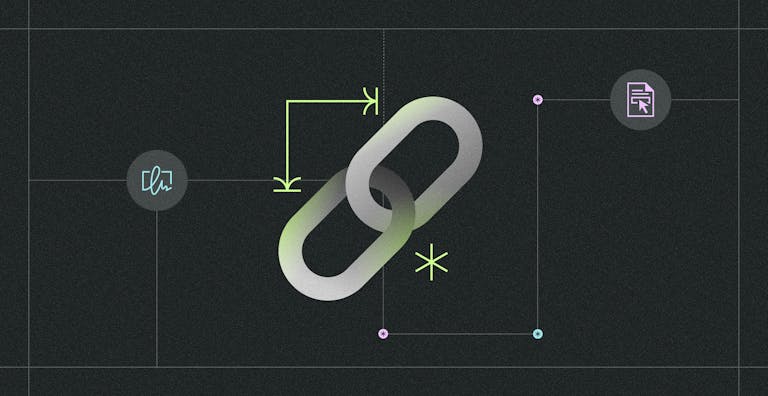In today's digital business landscape, electronic signatures have become an essential tool for organizations seeking to streamline document workflows and reduce paper consumption. However, when implementing e-signature solutions in the European Union, compliance with the General Data Protection Regulation (GDPR) is non-negotiable.
At Yousign, we understand the critical intersection between electronic signature technology and data protection requirements. This guide explains how GDPR impacts your e-signature processes and provides practical advice for maintaining compliance while digitizing your document workflows.
Understanding GDPR in the Context of E-signatures
Overview of the General Data Protection Regulation
The GDPR, implemented in May 2018, represents the most significant overhaul of data protection legislation in Europe for decades. This comprehensive regulation:
- Applies to all organizations processing EU residents' personal data
- Establishes strict requirements for data collection, processing, and storage
- Grants individuals enhanced rights over their personal information
- Imposes substantial penalties for non-compliance (up to €20 million or 4% of global annual turnover)
For businesses implementing digital solutions such as e-signatures, understanding GDPR requirements is essential for both legal compliance and maintaining customer trust.
Definition of Personal Data and Processing Activities
Under GDPR, personal data encompasses any information relating to an identified or identifiable natural person. In the context of electronic signatures, this includes:
- Names and email addresses of signatories
- IP addresses and device information
- Timestamp data showing when documents were viewed and signed
- Biometric data (if handwritten signatures are captured electronically)
- Any additional personal information contained within signed documents
"Processing" covers virtually any operation performed on this data, including collection, storage, transmission, and deletion—all activities inherent to e-signature workflows.
Why E-signature Solutions Fall Under GDPR Scope
Electronic signature platforms necessarily process personal data as part of their core functionality. They collect identifiers from signatories, store information about signing activities, generate and maintain audit trails, transmit notifications containing personal data, and retain signed documents containing personal information.
This processing places e-signature providers (and their clients) squarely within GDPR's regulatory scope, requiring specific compliance measures for legal operation within the EU.
NB:
Organizations often mistakenly focus solely on the legal validity of signatures without considering the data protection implications of their e-signature processes.
How Electronic Signatures Relate to GDPR
Processing and Storing Personal Data During E-signature Workflows
Electronic signature processes typically involve multiple personal data touchpoints:
- Collection phase: Gathering email addresses and names of signatories
- Authentication phase: Verifying signer identity through various methods
- Signing phase: Creating the electronic signature and associating it with the signer
- Storage phase: Maintaining signed documents and audit trails
- Sharing phase: Distributing signed documents to relevant parties
Each phase must comply with GDPR principles, with particular attention to data minimization and storage limitation. When automating contract workflows at scale, organisations must ensure GDPR compliance is built into every stage of the contract lifecycle, from template creation through digital archiving.
GDPR Principles Applied to E-signatures
Several core GDPR principles directly impact electronic signature implementation:
- Lawfulness, fairness, and transparency: Organizations must have a legal basis for processing personal data through e-signatures, typically contract performance, legal obligation, or legitimate interest
- Purpose limitation: Personal data collected during e-signature processes must be used only for specified, explicit purposes
- Data minimization: Only necessary personal data should be collected during signing workflows
- Accuracy: Systems must maintain the accuracy of signer information
- Storage limitation: Retention periods for signed documents and associated metadata must be established and enforced
- Integrity and confidentiality: Appropriate security measures must protect all personal data involved in e-signature processes
Organizations implementing digital workflows must ensure these principles are embedded in their e-signature processes.
Data Subject Rights in the E-signature Context
GDPR grants individuals specific rights regarding their personal data, including:
- Right to access: Signatories can request information about their personal data used in signing processes
- Right to rectification: Incorrect information in signature records must be correctable
- Right to erasure: Under certain conditions, signature-related personal data may need to be deleted
- Right to data portability: Individuals may request their signing data in a structured, commonly used format
- Right to object: Signatories may object to certain types of processing
E-signature solutions must incorporate mechanisms that enable businesses to respect these rights when requested by signatories or document participants.
Ensuring E-signature Compliance with GDPR
Use of Qualified Trust Service Providers
The most straightforward path to GDPR-compliant electronic signatures is through Qualified Trust Service Providers (QTSPs)—organizations officially recognized under the EU's eIDAS Regulation. QTSPs undergo rigorous certification, implement comprehensive data protection measures, maintain strict security protocols, and provide signatures with the highest legal assurance. Working with a QTSP offers organizations built-in compliance safeguards that align with both eIDAS and GDPR requirements.
Role of Qualified Electronic Signatures Under eIDAS
The eIDAS Regulation works alongside GDPR to establish a framework for secure electronic signatures:
- Simple Electronic Signatures (SES): Basic signatures with minimal formality
- Advanced Electronic Signatures (AES): Signatures uniquely linked to and capable of identifying the signer
- Qualified Electronic Signatures (QES): Advanced signatures created by qualified devices and based on qualified certificates
Qualified Electronic Signatures provide the strongest GDPR alignment as they incorporate robust identity verification, ensuring data accuracy and appropriate processing.
Try electronic signature for free for 14 days
Data Storage, Audit Trails, and Access Control
GDPR-compliant e-signature solutions must implement secure data storage with encryption, comprehensive audit trails documenting all activities, role-based access controls, data retention policies with automatic purging, and data segregation to prevent unauthorized access. These technical measures support both accountability and security requirements under GDPR.
Importance of Clear Privacy Policies and User Consent
Transparency is fundamental to GDPR compliance. E-signature implementations must include:
- Clear privacy notices explaining all data processing activities
- Specific information about how signature data will be used and stored
- Disclosure of any third parties who may access signed documents
- Information about data subject rights and how to exercise them
- Consent mechanisms where appropriate legal basis requires it
Good to know:
When implementing electronic signatures, organizations should review and update their privacy policies to specifically address e-signature data processing activities.
Key Features of GDPR-compliant E-signature Platforms
When selecting an e-signature solution that supports GDPR compliance, look for these essential features:
Data Encryption at Rest and in Transit
Robust encryption protects personal data throughout the signature lifecycle with TLS/SSL encryption for transmissions, AES-256 encryption for stored documents, encrypted audit trails, and secure key management. These measures safeguard data against unauthorized access, supporting GDPR's integrity requirements.
User Authentication and Signature Validation Mechanisms
Strong authentication ensures data accuracy through multi-factor authentication, email and phone verification, clear signature attribution, and tamper-evident seals. For companies managing remote teams, these features are particularly valuable for secure document approvals.
Hosting Data Within the European Union
GDPR restricts data transfers outside the EEA, making EU-based data centers advantageous. Local hosting streamlines compliance, eliminates complex transfer mechanisms, demonstrates commitment to data protection, and may be required for sensitive documents. Organizations should prioritize providers with EU-based infrastructure.
Ability to Manage and Restrict Data Processing Operations
Granular control supports GDPR compliance through customizable data collection, adjustable retention periods, tools for implementing data subject requests, options to limit data sharing, and features for data extraction when required. These controls help organizations apply data minimization principles effectively.
Best Practices for GDPR-compliant Use of E-signatures
Beyond selecting the right platform, these practices enhance GDPR compliance:
Choose Providers with GDPR and eIDAS Alignment
Select e-signature solutions specifically designed for European compliance. Look for explicit GDPR compliance statements, verify eIDAS certification, check for relevant ISO certifications, request compliance documentation, and review security assessments. Yousign, as a European provider, builds GDPR compliance into its core platform.
Try Yousign for free for 14 days
Maintain Data Processing Agreements with Vendors
GDPR requires formal agreements with all data processors. Ensure your provider offers a comprehensive DPA, review terms regarding data subject rights, confirm sub-processor procedures, verify incident notification protocols, and check data deletion provisions. These agreements formalize GDPR responsibilities between parties.
Educate Signers on Their Data Protection Rights
Transparent communication builds trust and supports compliance. Inform signers about data processing, explain verification methods, provide access to privacy policies, offer channels for exercising rights, and document consent where applicable. This education should be integrated into your overall workflow.
Minimize the Amount of Personal Data Collected and Stored
Apply data minimization principles by collecting only necessary identification information, limiting metadata generation, establishing appropriate retention schedules, implementing automatic deletion, and avoiding sensitive personal data unless necessary. These practices reduce compliance burden while protecting privacy.
Frequently Asked Questions About GDPR Electronic Signatures
What are the GDPR requirements when using electronic signatures?
Organizations must establish a lawful basis for processing data, implement security measures, provide transparency, limit data collection, and respect data subject rights. Any e-signature provider must also act as a compliant data processor.
How can a business verify that its e-signature tool is compliant?
Check for ISO 27001 and eIDAS certifications, confirm EU-based data storage, and review the provider's Data Processing Agreement. Request a specific compliance statement addressing GDPR requirements for signature processes.
What are the risks of using non-compliant solutions?
Risks include GDPR fines up to €20 million, legal challenges to signed agreements, reputational damage, data breach vulnerabilities, and inability to fulfill data subject requests. Cross-border transactions may also be compromised.
Are there providers specifically recognized for GDPR compliance?
While no official "GDPR certification" exists, European providers like Yousign are built for compliance. Look for Qualified Trust Service Providers under eIDAS, ISO 27001 certification, and EU-based data hosting.
Do qualified electronic signatures offer stronger GDPR protection?
Yes, qualified electronic signatures offer stronger protection through rigorous identity verification and stricter data handling. They better support GDPR principles of accuracy, integrity, and accountability than simpler methods.
Making GDPR-Compliant E-Signatures Work for Your Business
Balancing e-signature adoption with GDPR compliance is straightforward with the right provider and processes. Organizations can gain efficiency while maintaining robust data protection.
At Yousign, our platform is built for eIDAS and GDPR compliance, with EU-based infrastructure, comprehensive security, and transparent data processing. This European foundation enables confident, compliant electronic signature implementation.
As businesses digitally transform, partnering with providers who understand European data protection is increasingly vital for seamless, compliant e-signature integration.
Ready to Implement
GDPR-Compliant Electronic Signatures?








